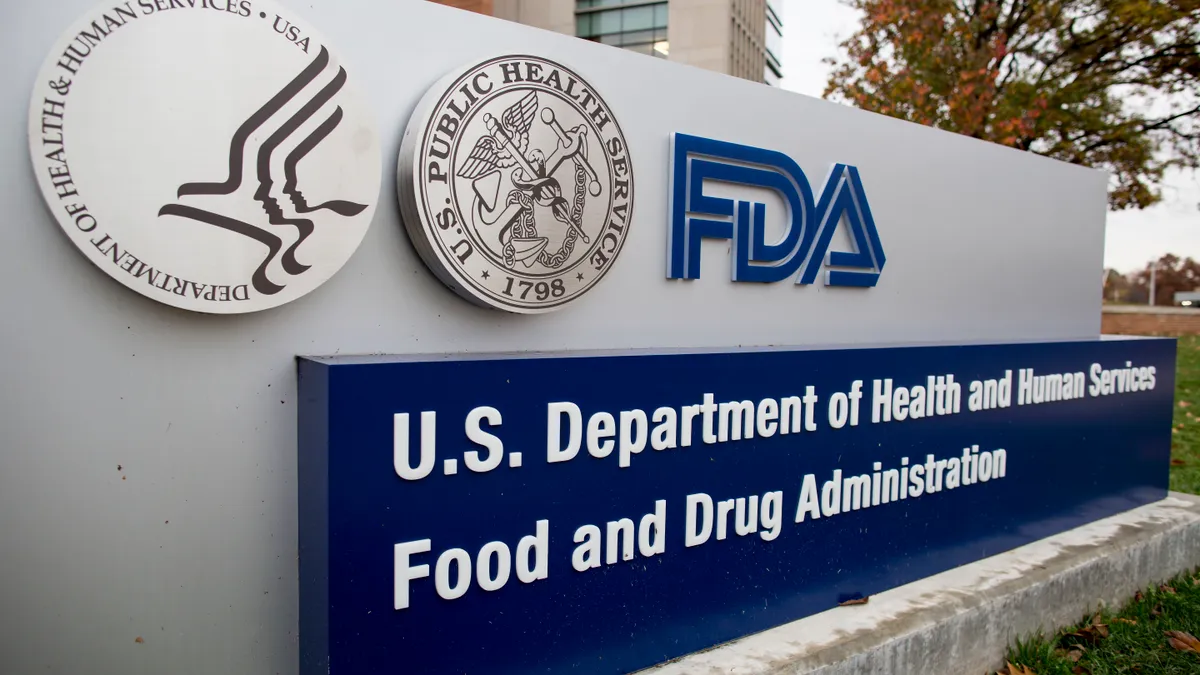Dive Brief:
-
FDA has admitted its policy of allowing COVID-19 antibody tests to come to market without undergoing regulatory review was "flawed."
-
Writing in The New England Journal of Medicine, FDA’s Jeffrey Shuren and Timothy Stenzel said government officials "touting the potential usefulness of these tests for reopening the economy" contributed to the market becoming flooded with poorly performing diagnostics early in the pandemic.
- While FDA later reversed the policy, Shuren and Stenzel said the experience has shown them the need to authorize products prior to market entry, leading them to propose a mechanism for accelerating evaluations in future health emergencies.
Dive Insight:
The NEJM article sets out the motivations for FDA's initial approach to COVID-19 antibody tests and the problems that persuaded it to change course. Shuren and Stenzel, respectively the director of the Center for Devices and Radiological Health and the director of the Office of In Vitro Diagnostics and Radiological Health, said FDA's initial approach was shaped by evidence of asymptomatic spread and a resulting desire to facilitate access to antibody tests that could shed light on prior infections.
That thinking led FDA to allow companies to bring antibody tests, also known as serology tests, to market without emergency use authorization. Rather, companies would only have to validate their tests, notify FDA and advise users that the diagnostics had not undergone regulatory review. The agency limited use of unauthorized tests to Clinical Laboratory Improvement Amendments-certified sites.
The CLIA requirement was intended as an additional safeguard. With tests used in homes or at the point of care needing emergency use authorization, FDA thought only sites with "personnel with the expertise to consider test performance" would use the antibody kits. However, that safeguard proved insufficient.
"Government officials began touting the potential usefulness of these tests for reopening the economy, and insurance coverage was provided for uses not supported by science and not in keeping with the limitations that the FDA had laid out. As a result, the market was flooded with serology tests, some of which performed poorly and many of which were marketed in a manner that conflicted with FDA policy," Shuren and Stenzel wrote.
The situation worsened throughout April 2020. By the end of the month, 164 commercial manufacturers had notified FDA about antibody tests. Shuren and Stenzel contrasted the volume and nature of the notifications to the market for tests of active COVID-19 infections. In the antibody space, more companies marketed "products made by other, typically non-U.S. manufacturers" and "false claims and data falsification" were much more common.
FDA issued a letter to healthcare providers about the misuse of the notification scheme in mid-April and then, facing criticism from politicians, changed its policy. The new policy led to the removal of 225 tests from FDA’s website, 15 warning letters and import alerts on 88 companies.
Shuren and Stenzel said that, knowing what they know now, they would "not have permitted serology tests to be marketed without FDA review and authorization, even within the limits we initially imposed." The failure of the notification scheme raises the question of how FDA could speed access to tests without compromising standards during future outbreaks of pathogens.
FDA's collaboration with the National Cancer Institute to establish the capacity to evaluate serology tests offers one possible answer. Shuren and Stenzel said the project, which led to the creation of evaluation panels for serology tests, shows the value of being able to evaluate test performance before outbreaks occur, thereby accelerating independent assessments in the event of a crisis.
"Combined with FDA authorization, this strategy could permit rapid independent assessment of molecular diagnostic, antigen, and serology test accuracy and minimize the need for developers to find patient specimens or other clinical samples to validate their tests, thereby expediting the availability of accurate tests," according to Shuren and Stenzel.
They contend that the federal government should also consider using this approach for technologies beyond COVID-19, such as extending NIH’s Rapid Acceleration of Diagnostics (RADx) initiative to speed development, commercialization, and implementation of testing outside of coronavirus.











